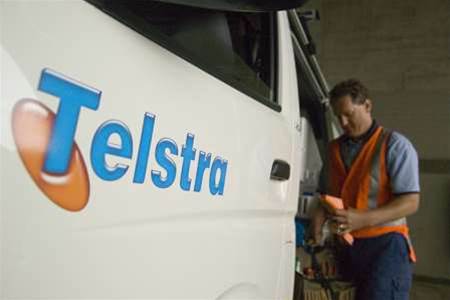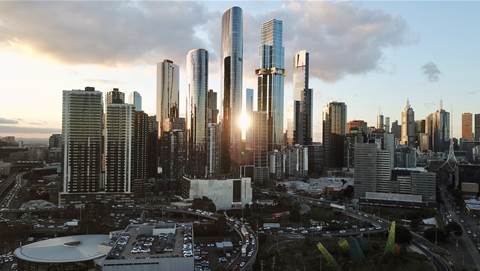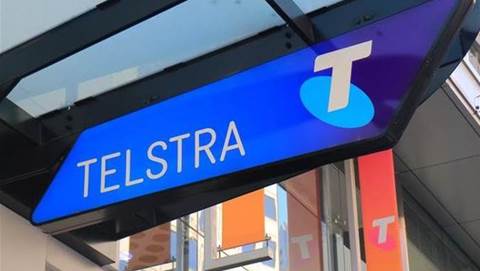Telstra chair John Mullen says Australia would have ended up with 100Mbps services “to the majority of the population” - though not to regional and rural areas without subsidy - even if the NBN had never been dreamt up.

Mullen used the telco’s annual general meeting (AGM) to attack NBN Co on multiple fronts, including affordability and incursions beyond its mandate.
However, he stopped short of calling for a drastic policy change, instead asking only that NBN Co respect its boundaries.
But Mullen also suggested that the problems with the NBN today - which are the subject of two Australian Competition and Consumer Commission (ACCC) inquiries - could have been avoided had the government not created the NBN in the first place.
“It is always easier to comment with the benefit of hindsight, but it is my view that over the last 10 years private sector competition between strong players such as Telstra, Optus, TPG and others was always going to build 100Mbps broadband access and speed to the majority of the population of Australia, in an ongoing competitive landscape and at no cost whatsoever to the taxpayer,” Mullen said.
“Governments could then have decided how much subsidy they were willing to provide the industry to extend this coverage to regional and rural areas where private sector economics were unattractive. “This would have been at a fraction of the cost of today’s NBN.
“Instead, however, in the NBN we have created a state-owned monopoly that is going to cost the country more than $50 billion.”
Mullen said that Telstra had to cop part of the blame for the NBN existing, however.
“Telstra … must bear part of the blame for this due to its recalcitrance in helping government at the time,” he said.
This is a likely reference to Telstra’s non-compliant proposal to build the NBN in 2008, which saw the telco booted from the process (a process that was ultimately scrapped in favour of the NBN today).
Prior to the NBN policy, Telstra had also proposed a fibre-to-the-node (FTTN) network in late 2005, but later dropped the plan because it could not find a way to exempt the network from being opened to third-party access.
Solving NBN's woes
“Whether we like it or not, the NBN is here to stay,” Mullen continued.
“It is in Telstra’s interest, the industry’s interest and the country’s interest to do all we can to make the NBN successful.
“Telstra is unequivocally trying to play its part in achieving this.
“However, that decision 10 years ago has left a number of substantive challenges for the industry and Australia to solve.”
Mullen said one of the challenges was NBN Co’s incursion into the enterprise market, which has already earned it a rebuke from the ACCC over deals that favoured some retail service providers (RSPs) over others.
“The original mandate for the NBN was that the NBN would be a wholesale provider only and would not favour or discriminate between RSPs,” Mullen said.
“It certainly wasn’t envisaged that NBN Co would negotiate contracts directly with customers and encourage them to seek special deals from certain RSPs.
“That, however, is what we are seeing today. Instead of remaining a wholesaler, the NBN is now going outside this mandate and is targeting our customers directly.”
Mullen said NBN Co’s behaviour in the business market was objectionable on multiple fronts.
“Firstly, it seems inequitable that the NBN can now move outside its mandate and sell directly to our customers, but RSPs have to stay within their mandate and cannot sell to the NBN Co’s own protected market in return, due to regulations which prevent retail providers investing in fixed line infrastructure to provide consumer services,” Mullen said.
He said the refocusing of resources chasing a market served by commercial operators “seems a waste of collective resources”, since it was “delaying investment in the consumer rollout to people yet to be connected, and instead … focusing investment in the enterprise market where the NBN is duplicating existing high speed fibre for no service or speed advantage.”
Mullen also said government ownership gave NBN Co “a very significant cost of capital advantage over the private sector, which is being used to its competitive advantage.”
“We understand that maximising the financial return of the NBN is important,” Mullen said.
“However, for the NBN to be allowed to move outside its mandate to achieve this but reciprocal competition from RSPs remains restricted, seems inequitable.”
Mullen said that the return of infrastructure-based competition would have an impact on prices.
“There is little doubt in my mind that were the NBN opened to competition, wholesale broadband prices in Australia would fall materially,” he said.
However, he also appeared to note the flow-on effect this could cause the entire NBN project.
“Let me be clear that we are not recommending that the nation’s policy settings be changed, but we are just saying that if policy settings are not to change, then both sides should respect their original mandates,” he said.
Price reforms
Telstra said yesterday it was “reassured” by the ACCC’s decision to investigate NBN affordability, which has been a major issue for the past two years, if not longer.
Mullen said that while the industry’s case for lower NBN wholesale prices had been “criticised by some as being self-serving” or as “whinging”, “this avoids Australia facing into the real issue here for both the industry and the country.”
“When Telstra was the regulated wholesale provider to the industry, Telstra charged an average of approximately $20 per user per month,” Mullen said.
“The NBN Co is now charging some $44 per month on average and ... states its ambition is to get this to $49 in FY23.”
Telstra said an RSP’s internal costs - “as a very broad generalisation” - were about “$12 - $18 on top, plus approximately $8 for the amortised cost to connect, so this gives an all in cost for an RSP to resell the NBN of over $70 per month.”
“Market prices to the consumer, however, are averaging below $70 per month excluding GST,” he said.
“Clearly losing money is unsustainable for all the 180 odd RSPs out there and is why we have seen some companies already starting to withdraw from reselling the NBN.
“In addition, these economics are leading many companies to invest in 5G fixed wireless and other technological solutions to allow them to offer competitive broadband without using the NBN, which just makes the situation worse.
“Ironically, it is actually becoming in the interests of those competitors that are embracing these new technologies that NBN’s prices remain high, so the alternative technologies become more attractive.”
Mullen warned that if broadband affordability in Australia did not improve, “over time most resellers of the NBN will withdraw or go broke.”
“The downside of this in turn will be fewer service providers and ultimately higher broadband prices to the consumer,” he said.
“Alternatively, a reduction in the wholesale price of the NBN would mean that reselling the NBN would be profitable for RSPs resulting in a dynamic and competitive broadband industry, and retail prices would be kept materially lower.”


















.png&h=141&w=208&c=1&s=1)

